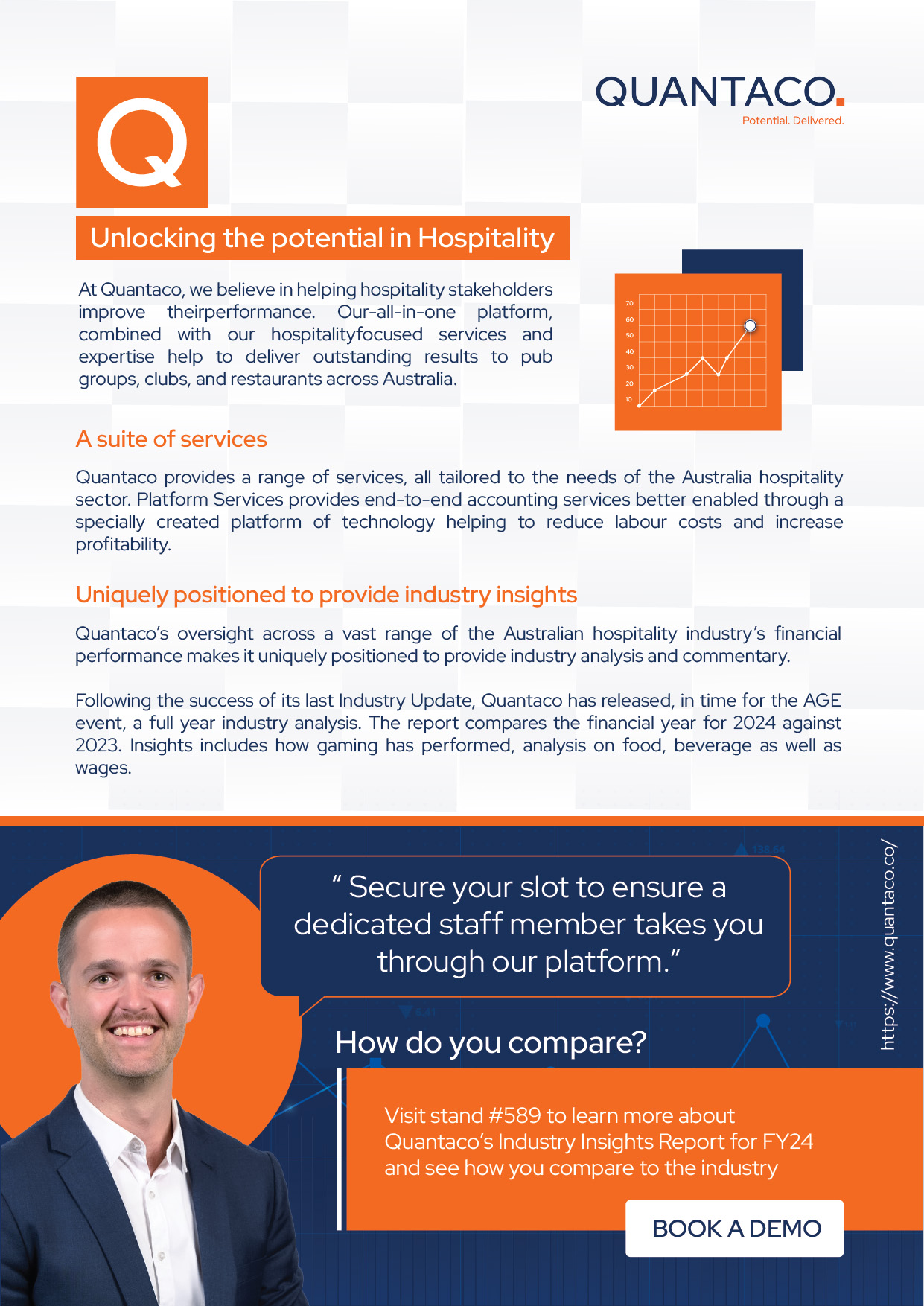FEATURE

In the past year social and political pressures have had a profound impact on the market and operational value of gaming machine licences, particularly in NSW, and operators are being forced to weigh risks and rewards.
This article comes through consultation with gaming room experts Optimise Gaming, assisted by Manenti Quinlan real estate. Clyde Mooney reports
Regardless of the personal opinions of publicans on the matter, there are growing economic and social, potentially patron-pleasing reasons for a pub to get more in tune with being green. Clyde Mooney reports
Gaming entitlements in New South Wales (NSW) play a crucial role in the state's hotel landscape, serving as both an additional trading department and a fundamental component underpinning the asset value of pubs.
This summary aims to explore recent trends in the valuations of gaming entitlements in NSW and provide insights into potential challenges faced by businesses operating in this dynamic landscape.
Regulatory Dynamics
Recent regulatory changes have exerted significant influence on the value of gaming entitlements in NSW. Businesses must remain vigilant and informed about the evolving regulatory landscape to anticipate potential impacts on entitlement values.
Increased compliance regulations necessitate businesses to maintain up-to-date internal compliance measures, while the overall compliance constraints also contribute to a shrinking pool of potential buyers of entitlements.
Trends in Gaming Entitlement Valuations
Over the past 12 months, the valuation of gaming entitlements in NSW has experienced a noticeable shift. Factors such as regulatory changes, market demand and economic conditions have all played roles in driving fluctuations in valuations. Understanding these trends is crucial for businesses to effectively navigate the evolving gaming landscape.
Impact on Values
The NSW elections marked the onset of a market shift, with each gaming machine entitlement (GME) valued at the time at around $650,000 + GST, and the NSW Liberals promising a strict stance on gaming if re-elected. This susceptibility to regulatory changes led to softened demand for GMEs, seeing values slide to approximately $550,000 + GST (per landed entitlement). Subsequently, following the election victory of the NSW Labor party, transactions resumed.
However, a court case on 5 July, 2023, led to the Independent Liquor and Gaming Authority (ILGA) imposing a freeze on transfers until an appeal was heard. ILGA ultimately succeeded in its appeal, and following this victory began imposing more stringent restrictions on hotels seeking to increase their threshold.
FEATURE
These rigorous restrictions further softened demand for GMEs, bringing their current valuation to approximately $325,000 + GST landed. It’s important to note that a part of the NSW Labor reforms is to introduce a 1 in 2 forfeiture – increased from the current 1 in 3 system. While future values are hard to determine given the current regulatory landscape, it can be anticipated that the increased reduction of the GME pool via forfeiture would have a positive impact on value in the long term.
Potential restrictions can now be imposed at ILGA’s discretion when an operator is seeking to increase a venue’s entitlement threshold. These also vary depending on LGA band. Conditions include:
A NSW Government announcement on 2 February also mandated from 1 July 2024 all venues with more than 20 GMEs must engage Responsible Gambling Officers. As part of the reforms all venues will also be required to keep a Gambling Incident Register and a Gaming Plan of Management.
Mitigation Strategies
To mitigate the impact of fluctuating valuations, businesses should further consider diversifying their revenue streams. This could involve expanding services, introducing new offerings, or exploring complementary ventures.
A focus on customer engagement and increased patronage benefits hotels as a whole, with overflow into each department. Given the uncertainty in valuations, businesses should focus on enhancing operational efficiency and improving their values through a diversified trade and limiting reliance on any one department. Businesses should prioritise adaptability and forward-looking planning. This involves potentially anticipating regulatory changes, staying ahead of industry trends, and proactively adjusting business strategies to align with the evolving gaming landscape.
Conclusion
In summary, the valuation of gaming entitlements in NSW is

subject to dynamic forces that demand strategic foresight and adaptability from businesses in the gaming sector.
By understanding recent trends, staying compliant with regulations, and implementing effective mitigation strategies, businesses can navigate challenges and position themselves for long-term success in this ever-changing environment.

.
